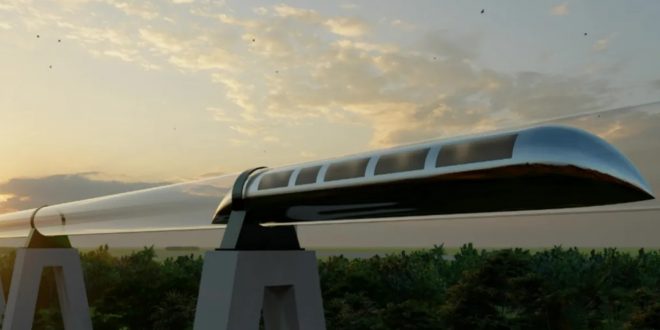The ultra-high-speed maglev train developed in China has once again shattered its own speed record, reaching mind-boggling speeds of over 623 kilometers (387 miles) per hour during a test run on a full-scale track. This remarkable achievement solidifies China’s position as a frontrunner in the race for high-speed transportation innovation.
China’s state-owned aerospace company CASIC is in charge of overseeing the project. CASIC is known for its wide range of products, including rockets, missiles, satellites, and spacecraft.
In 2023, the train achieved an impressive feat by reaching a remarkable speed of 623 kilometers (387 miles) per hour during a test run conducted under non-vacuum conditions. According to the South China Morning Post, CASIC has announced that recent tests have exceeded the previous record. The precise velocity is said to be currently undisclosed.
In addition, the test was conducted in a low-vacuum tube, demonstrating the successful functionality of the maglev technology. The advanced train system achieved a remarkable feat by breaking the speed record during a test run on a full-scale 2-kilometer (1.2-mile) track in the city of Datong in Shanxi province, northern China.
The vehicle utilizes maglev technology, harnessing the power of magnetism to propel the train forward and effortlessly levitate it above the tracks, resulting in a significant reduction in friction. The train is able to achieve even greater speed by utilizing a specially designed low-vacuum tube, which effectively minimizes air resistance.
The pace at which technology is progressing is truly remarkable. In October 2022, CASIC showcased an impressive train test run, reaching speeds of 130 kilometers (81 miles) per hour. The latest attempt is significantly faster than its predecessors.
There might be even more exciting things on the horizon. CASIC has previously shown enthusiasm for pushing the boundaries of train speed, aiming for a maximum velocity of 1,000 kilometers (620 miles) per hour and even exploring technologies that could potentially reach an astonishing 4,000 kilometers (2,485 miles) per hour.
Prior to CASIC’s achievement, a team of engineers at the Technical University of Munich held the record for the fastest hyperloop speed, reaching 463 kilometers (288 miles) per hour in July 2019.
There are currently six maglev train systems operating worldwide, with three in China, two in South Korea, and one in Japan. These trains, unlike hyperloops, operate in the open air.
Maglev trains, despite their impressive speed, come with a hefty price tag. Additionally, these systems consume significant amounts of energy and necessitate specialized infrastructure that can be challenging to incorporate into current transportation networks.
Meanwhile, outside of China, Hyperloop One, the company responsible for a futuristic transportation system once praised by Elon Musk, ceased operations late last year.
It’s evident that the dream of hyperloop technology is still very much alive. There has been some buzz about a potential commercial hyperloop system in Italy that would link Venice, Metre, and Padua in under 15 minutes. It’s worth noting that the train journey time between Mestre and Padova currently takes around 14 minutes.
 Tech Gadget Central Latest Tech News and Reviews
Tech Gadget Central Latest Tech News and Reviews




